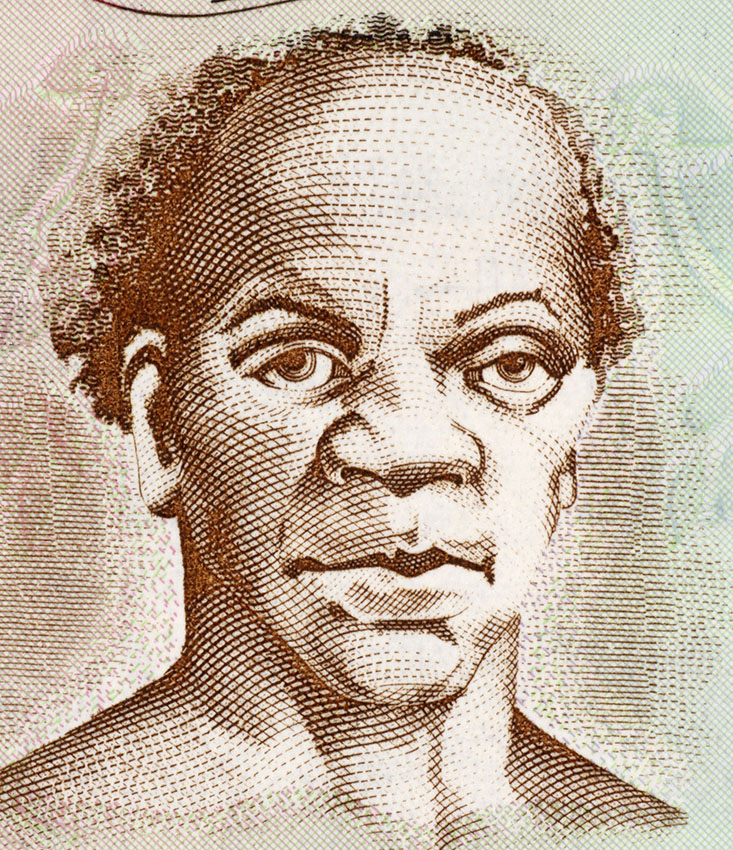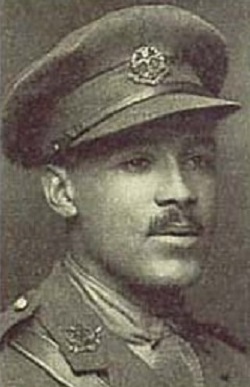Black History Month and The Gazette
To celebrate Black History Month, we take a look through the archives at some significant moments in black history that have been recorded in The Gazette.

Abolition of slavery
The campaign in Britain to abolish slavery begun in the 1760s, with William Wilberforce a leading voice of the abolition movement. This culminated in what is now known as the Slavery Abolition Act in 1833. But many events leading up to the abolition of slavery, as well as the act itself, were recorded in The Gazette.
The Baptist War
One such example is the reporting of The Baptist War, also known as the Christmas Rebellion and the Christmas Uprising. It began on Christmas Day in 1831 and involved up to 60,000 of the 300,000 slaves in Jamaica who demanded more freedom and a working wage. Led by Baptist preacher, Samuel Sharpe, slaves began a peaceful general strike on 25 December 1831. However, the strike soon became violent, with British forces and the Jamaican government overpowering the armed slaves by the first week of 1832.
A Gazette Extraordinary was published on 22 February 1832 documenting the events of the uprising (Gazette issue 18906): “Having received information from Mr. James Campbell, Overseer, on Y. S. Estate, with whom I had lived as book-keeper, that the slaves from Ginger-hill to Belvidere Estate, in Saint James's, intended to disarm the white people during the Christmas holidays”.
Slavery Abolition Act 1833
The legislation for the abolition of slavery (now known as the Slavery Abolition Act 1833) gained Royal Assent on 28 August 1833 and was recorded in The Gazette two days later (Gazette issue 19080):
‘An Act for the abolition of slavery throughout the British Colonies, for promoting the industry of the manumitted slaves, and for compensating, the persons hitherto entitled to the services of such slaves.’
The Act came into force a year later on 1 August 1834 and made the purchase or ownership of slaves illegal in the British Empire, with the exception of "the Territories in the Possession of the East India Company", meaning Ceylon (now Sri Lanka) and Saint Helena. Full emancipation for all was legally granted in the British Empire on 1 August 1838.
Military service
The Gazette is the official bearer of War Office and Ministry of Defence events, and for hundreds of years has been publishing promotions, honours and awards for gallantry and meritorious service in the armed forces, often referred to as ‘Mentioned in Despatches’.
 Walter Tull
Walter Tull
One gazetted soldier was Walter Tull, the first British-born black army officer and the first black officer to lead white British troops into battle. A former professional footballer for Tottenham Hotspur and Northampton Town, Tull served in World War 1 initially in the 17th (1st Football) Battalion, Middlesex Regiment as a Lance-Corporal.
In 1916, Tull fought in the Battle of the Somme and afterwards returned to Britain for officer training, despite army rules forbidding a ‘person of colour’ being commissioned as an officer (a leader of men). An exception to the rule, Tull was commissioned as a second lieutenant in the 23rd (2nd Football) Battalion, Middlesex Regiment on 30 May 1917 (Gazette issue 30134), becoming what is widely regarded as the first African-Caribbean mixed-heritage infantry officer in the British Army.
Tull died at the age of 29 in March 1918 when leading an attack on the Western front during the Second Battle of the Somme. In a letter to his family, the commanding officer of the 23rd Battalion Major Poole and second lieutenant Donald Henry Pickard stated that Walter Tull ‘had been recommended for the Military Cross, and certainly earned it.’
George Arthur Roberts
Born in Trinidad in 1891, George Arthur Roberts enlisted in the Trinidadian Army when WW1 began. Having arrived in the UK in the early 1910’s, Roberts was soon enlisted as a rifleman in the Middlesex Regiment. He fought in the battles of Loos, the Somme and in the Dardanelles, where he was given the nickname of ‘Coconut Bomber’ due to his ‘extraordinary’ ability to throw bombs back over enemy lines, as he did with coconuts as a child.
After the war, Roberts settled in London and became involved with the post-war welfare of soldiers and campaigned on behalf of The National Federation of Discharged and Demobilised Sailors and Soldiers. He also went on to found a local branch of the British Legion and was one of the founding members of the League of Coloured Peoples, an influential civil rights organisation.
During the World War 2, Roberts was too old for combat, so instead enlisted for the Home Front and joined the Auxiliary Fire Service, where he served during the Blitz. In 1944, he was awarded the British Empire Medal (Gazette issue 36547) in the King George VI’s Birthday Honours for “his general duties at New Cross Fire Station and for his part as a founder and pioneer of the Discussion and Education groups of the Fire Service.”
George Arthur Roberts died in January 1970 aged 79. A blue plaque was erected in his honour in Camberwell, London in 2016.

British honours
The Gazette is also the official home of the monarch’s Birthday Honours and New Year Honours, which recognise the achievements and service of people across the UK. The honour lists are published in a special Gazette supplement in the new year and on the monarch’s official birthday.
William Reeves, a nineteenth century lawyer and academic who was appointed to be one of Her Majesty's Counsel for Barbados in 1883 by Queen Victoria (Gazette issue 25254), and subsequently became the first black Chief Justice of Barbados in 1886 (Gazette issue 25618), was the first black man to be knighted by a British sovereign when he was knighted in 1889 (missing issue*).
The Lord Constantine, Learie Constantine was a former West Indian cricketer, lawyer and politician who was knighted in 1962 (Gazette issue 42552). He had previously received an MBE (Gazette issue 37412) in 1945 and went on to be made a life peer in 1969 (Gazette issue 44740), making him the UK's first black peer. Fellow West Indian cricketers, Sir Clive Lloyd (Gazette issue 62866) and Sir Garfield Sobers (Gazette issue 46444) were also subsequently knighted.
More recently in sport, Olympic gold medalist Dame Kelly Holmes was appointed a DBE in the 2005 New Year Honours (Gazette issue 57509), while Sir Mo Farah (Gazette issue 61803) and Sir Lewis Hamilton (Gazette issue 63218) have also been recognised in recent New Year Honours lists.
In football, former England players Rio Ferdinand (Gazette issue 63714), Rachel Yankey (Gazette issue 57855), Alex Scott (Gazette issue 61803) and Ian Wright (Gazette issue 55710) all received an OBEs and MBEs, respectively. While current players such as Marcus Rashford received an MBE in 2020 Queen's Birthday Honours for ‘services to Vulnerable Children in the UK during Covid-19’ (Gazette issue 63142), and Raheem Sterling was awarded an MBE for ‘services to Racial Equality in Sport’ (Gazette issue 63377).
In entertainment, Sir Trevor McDonald was knighted in 1999 for ‘services to Broadcasting and Journalism’ (Gazette issue 55513), while Dame Shirley Bassey received a DBE in the same year for ‘services to Entertainment’ (Gazette issue 55710). Sir Lenny Henry received his knighthood in 2015 ‘for services to Drama and Charity’ (Gazette issue 61256), while actors Idris Elba (Gazette issue 61450), Chiwetel Ejiofor (Gazette issue 61256) and Thandie Newton (Gazette issue 62507) have also been recognised with British honours.
In literature, author Bernardine Evaristo has received both an OBE (Gazette issue 63135) and an MBE (Gazette issue 59090), while Britain's youngest and first black female book publisher Margaret Busby has received both a CBE (Gazette issue 63377) and an OBE (Gazette issue 57855) for services to publishing.
Elsewhere, Dame Jocelyn Barrow, founder of the Broadcasting Standards Council and the first black woman to be a governor of the BBC, was given a damehood in 1991 (Gazette issue 52767). Civil rights activist and campaigner Paul Stephenson was awarded with an OBE in the 2009 New Year Honours (Gazette issue 58929), while Bill Morris, Britain’s first black leader of a major British trade union, received a knighthood in the 2003 Queen's Birthday Honours (Gazette issue 56963). In 2006, it was announced that Morris would take a seat in the House of Lords as a working life peer as Baron Morris of Handsworth, of Handsworth in the county of West Midlands (Gazette issue 58007).
*Missing issues of The London Gazette are currently being rescanned and uploaded to The Gazette website. This article will be updated in due course.
See also
This month in history: Samuel Sharpe and the Christmas Rebellion
Find out more
Slavery Abolition Act 1833 (Legislation)
Images (in order of appearance):
Getty Images
Public domain
Getting Images
Publication date: 10 October 2022
